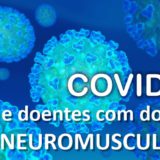Problemas com ganho de peso e alimentação em pacientes com distrofia muscular de Duchenne
Itália – neste estudo através de um questionário os pesquisadores avaliaram as alterações para alimentação e o ganho de peso em 118 pacientes com distrofia muscular de Duchenne (de 13,8 a 35,8 anos). Com o aumento da idade há aumento das dificuldades para alimentação. Há alguns casos de pneumonia por aspiração de alimentos e casos de refluxo gastroesofágico. Com o aumento da sobrevida faz se necessário um acompanhamento dos sintomas digestórios em pacientes com Duchenne. O resumo em inglês desta pesquisa pode ser lida abaixo:
(IN PRESS:European Journal of Paediatrics Neurology, 2006) Feeding problems and weight gain in Duchenne muscular dystrophy
Marika Pane, Isabella Vasta, Sonia Messina, Domenica Sorleti, Annie Aloysius, Federico Sciarra, Fortunato Mangiola, Maria Kinali, Enzo Ricci and Eugenio Mercuri – Italy
The aim of the study was to conduct a survey using a dedicated questionnaire to estimate feeding difficulties, gastrointestinal involvement and weight gain in a population of 118 Duchenne muscular dystrophy (DMD) patients (age range 13.80–35.8 years). All the answers were entered in a database and the data analysed subdividing the cohort into age groups (3–9, 9–13, 13–18, 18–24, 24–30, 30–36 years). The results indicate that chewing difficulties are frequent and become increasingly present with age, associated with a progressive increase of the duration of meals. Episodes of choking or other clinical signs of swallowing difficulties are in contrast much less frequent even after age 18. Aspiration pneumonia were also not very frequent and only occurred in 7/118. Clinical signs of gastroesophageal reflux requiring treatment were only found in 5 while 43/118 complained of constipation requiring treatment. Very few of our patients had their weight above 2 SD (n=4) and this was always found in patients between 9 and 18 years while after this age there was an increasing number of patients with weight below 2 SD. The results of our survey suggest that although choking is one of the most feared complications in patients with DMD, clinical signs of swallowing abnormalities are infrequent when collecting clinical information retrospectively. Further studies using an objective evaluation such as videofluoroscopy are needed to identify minor signs that may not be obvious on clinical examination.



